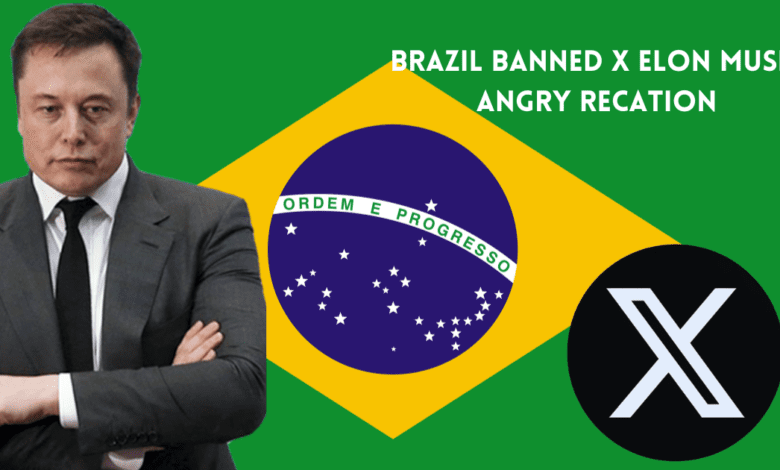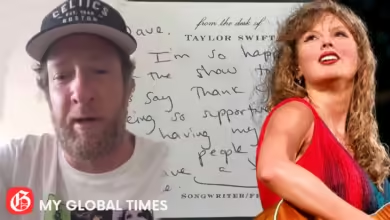Brazil Bans X: Is Europe Next in Line?

Brazil’s decision to ban the social media platform X (formerly Twitter) has sent shockwaves through the global internet community, reigniting the debate over free speech and online censorship. With the European Union (EU) following closely, many are questioning if similar moves are on the horizon. In this article, we explore the key events surrounding this issue, from Brazil’s action to the EU’s response, and what it could mean for the future of online freedom.
The Rise of Internet Censorship in Brazil
Brazil’s government has been cracking down on social media platforms in an effort to combat misinformation and hate speech. The ban on X comes after repeated clashes between tech companies and Brazilian authorities over content moderation policies. Brazil has long struggled with how to balance free speech with the need to protect citizens from harmful content, but this recent move marks a significant escalation.
The EU’s Response to Brazil’s Ban: Is a Ban Coming?
The EU has been paying close attention to the actions taken in Brazil. Thierry Breton, Commissioner for Internal Market of the European Union, has been vocal about the need for greater regulation of online platforms. Ahead of X’s live stream featuring Elon Musk and Donald Trump, Breton warned of the risks of amplifying harmful content, citing concerns over public unrest and disinformation.
The EU has already implemented laws like the Digital Services Act (DSA), designed to hold platforms accountable for content on their sites. However, questions remain about whether the EU will follow Brazil’s footsteps and ban X or other platforms outright. While the EU champions free speech, its strong stance on regulating disinformation and hate speech could push it toward more drastic actions.
Global Internet Policy and the Role of Censorship
This trend isn’t confined to Brazil and the EU. Countries like France have also taken steps to regulate online platforms, notably banning RT (Russia Today) and Sputnik, Russia’s state-run media. When Rumble, a social media platform, refused to follow France’s censorship demands, the country blocked the service.
These developments are part of a broader international movement where governments are attempting to control the flow of information online. In many cases, such actions are justified under the guise of protecting national security or preventing hate speech. However, the line between necessary regulation and outright censorship is becoming increasingly blurred.
Gutfeld Criticizes Taylor Swift’s Endorsement of Harris
How Far Will the EU Go?
Despite its history of advocating for free speech, the EU has shown signs of being open to more stringent censorship. In addition to the DSA, the EU has passed laws like the General Data Protection Regulation (GDPR), which have had far-reaching effects on global internet policy.
While the EU hasn’t banned X yet, the ongoing war on misinformation and harmful content may push the bloc closer to such measures. Elon Musk’s outspoken nature and defiance of government regulations could make X a prime target for future EU censorship efforts.
The Role of Section 230 and Encryption in the United States
The battle over online censorship isn’t limited to Europe and Latin America. In the U.S., the Section 230 debate continues, with lawmakers pushing for greater platform accountability for harmful content. At the same time, encryption technologies are being targeted, with governments arguing that they need access to encrypted messages to prevent criminal activities.
Platforms like Telegram, known for their strong encryption and refusal to comply with certain government demands, have found themselves in the crosshairs of global authorities. The recent arrest of Pavel Durov, Telegram’s founder, in France is just one example of how governments are attempting to exert control over online platforms by holding executives accountable.
What’s Next for Online Freedom?
With more countries considering tighter regulations, online freedom is at a critical juncture. Brazil’s ban on X, France’s arrest of Durov, and the EU’s growing interest in stronger content regulations all point toward a future where governments play a much larger role in shaping what can and cannot be said online.
For tech companies, the challenge will be finding a balance between complying with government regulations and protecting the fundamental right to free speech. As more countries join the censorship wave, tech companies like X, Rumble, and Telegram may find it increasingly difficult to operate without government interference.
Conclusion: A Turning Point for Free Speech?
As Brazil’s ban on X reverberates across the globe, the question remains: will the EU follow suit? While it’s unclear if a complete ban is on the horizon, the EU’s actions suggest that it’s prepared to take drastic measures to regulate harmful content. As governments around the world push for greater control over the internet, the future of free speech is uncertain. For now, both tech companies and users alike are left to navigate this rapidly changing digital landscape.
Author: Niraj Kumar | My Global Times






One Comment